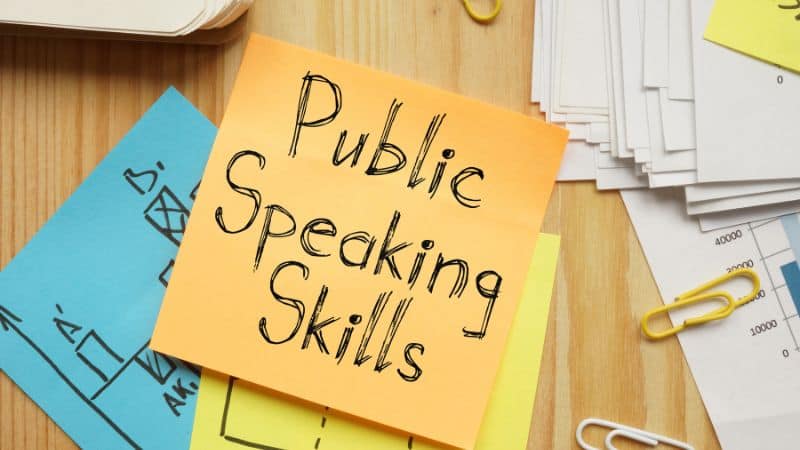After a talk, someone will sometimes say this with a smile: “You spoke so naturally. Parang wala kang preparation.”
It sounds like a compliment, and it is. But it also hides the truth. What they really mean is: your preparation didn’t show. You didn’t sound like you were trying hard to be impressive. You sounded like you belonged there.
That kind of “natural” speaking rarely comes from last-minute polish. It usually comes from something deeper—preparation that has been practiced so often it already became part of your life.

Preparation isn’t an event. It’s a lifestyle.
Most speakers treat preparation like a task: build the deck, outline the points, rehearse the opening, then hope the rest flows. That approach works when the room is friendly and the stakes are low.
But when the room becomes real—when time gets cut, when a senior leader asks a sharp question, when the energy drops—you don’t rise to your outline. You fall back to your reservoir.
Your reservoir is what you’ve built long before this day: the stories you’ve refined, the lessons you’ve tested in real work, the frameworks you can explain without slides, the questions you know how to ask when the audience looks confused. That’s why experienced speakers look calm. They’re not calm because they’re fearless. They’re calm because they’re stocked.
Pause here
Think of your next speaking moment.
A client presentation. A project update. A meeting where your boss is listening closely. A talk where you want people to change something after you speak.
What preparation are you making that people can’t see?
Not the slides. Not the script. Not the “last-minute practice.”
I mean the preparation that will still work when your plan gets disrupted.
A short story about underpreparing
Early in my speaking journey, I thought preparation meant cramming. Skim the notes, fix the outline, trust the charm, show up. I convinced myself that energy and experience would carry the session.
I walked into a seminar with that mindset—“kaya na ’to”—and I felt the cost almost immediately. My stories wandered because I hadn’t chosen them well. My points sounded thin because I hadn’t connected them to the audience’s world. The room stayed polite, but the energy didn’t rise. The applause at the end didn’t feel like appreciation. It felt like relief.
On the way home, I wasn’t mad at the audience. I was disappointed in myself, because underpreparing isn’t just a scheduling problem. It’s a respect problem. People may not say it out loud, but they can feel when you show up half-ready.
That moment taught me a simple truth: the audience doesn’t need a perfect speaker. They need a prepared one.
Preparation isn’t about impressing. It’s about serving.
A lot of speakers prepare with fear in the driver’s seat. They want to avoid embarrassment. They want to sound smart. They want to prove they deserve the microphone.
But preparation changes when you prepare to serve. When service becomes your goal, your attention shifts outward. You stop obsessing over how you look. You start noticing how they receive. You choose stories that help them see themselves. You simplify your message so it can be used the next day.
That’s when speaking stops being performance and becomes leadership.
What effective speakers actually prepare
Most people overprepare the deck and underprepare the impact. Effective speakers do the opposite. They prepare beyond the obvious, because they know the moment will ask for more than slides.
Prepare your message
A talk becomes effective when it has one clear move. Not ten ideas. Not a long lecture. One shift the audience can remember and practice.
Before you ask, “What will I talk about?” ask, “What change does this audience need?” Then build around that: one idea, one story, one tool. When your message is clean, you stop carrying clutter. You speak with steadiness because you’re no longer juggling too much.
Prepare your stories
Stories are not decoration. They’re evidence.
A prepared story isn’t a long backstory. It’s one moment, one decision, one turning point. You know where the scene begins, what breaks, what changes, and what it means. Then you connect it to the audience’s reality so the story becomes a mirror, not a movie.
When your stories are ready, you don’t scramble on stage. You stay present because you already know what story you’re using and why.
Prepare your body
Speaking is physical work. Your voice is an instrument. Your energy is the delivery system.
If you arrive dehydrated, rushed, and sleep-deprived, you will sound less clear than you actually are. I’ve felt it—the dry throat, the shallow breathing, the creeping fatigue that makes you ramble. That’s not lack of skill. That’s lack of capacity.
Sleep, hydration, movement, and recovery aren’t fluff. They’re part of the job.
Prepare your presence
Presence is what people remember when they forget your slides. It’s how you handle silence. How you respond to unexpected questions. How you stay calm when something goes wrong.
You don’t get presence by trying to “act confident.” You get presence by knowing your message so well that you’re free to focus on the audience. Preparation gives you freedom. Freedom creates presence.
The 15-Minute Reservoir Drill
Use this before any talk, meeting, client call, project update, or performance review. It’s quick enough to be realistic, and strong enough to change how you show up.
Start with a blank page. Write slowly.
Step 1: The One Move
Finish this sentence: After this, I want them to ______.
Write an action, not a topic.
If you catch yourself writing “leadership,” “communication,” or “teamwork,” stop. Those are themes, not moves. A move sounds like: decide faster, speak up earlier, give feedback today, clarify the next step, own the outcome.
Step 2: The One Story
Pick one story that proves the move. One scene. One turning point. No long backstory.
Step 3: The One Tool
Give them one thing they can use tomorrow: a question, a script, a checklist, a rule.
Step 4: The One Line
Write one line they can repeat when pressure hits. If it can’t be said in one breath, it’s not ready yet.
A common mistake to avoid
Many speakers confuse “prepared” with “full.”
So they add more slides. More points. More references. More stories.
But the room doesn’t need more.
The room needs direction.
Preparation isn’t stuffing your talk with content. It’s making your message lighter, clearer, and easier to apply.
A final push
If you want to become an effective speaker, stop chasing the image of being “naturally good.”
Chase the life that makes good speaking inevitable.
Because the best compliment isn’t “Ang galing mo.” The best compliment is when someone uses what you said a week later, and it changed how they work.
Don’t prepare to perform. Prepare to serve.
If your team is stuck in meetings, misalignment, or slow decisions…
Let’s design one shift they can use immediately.
→ Shift Experiences








